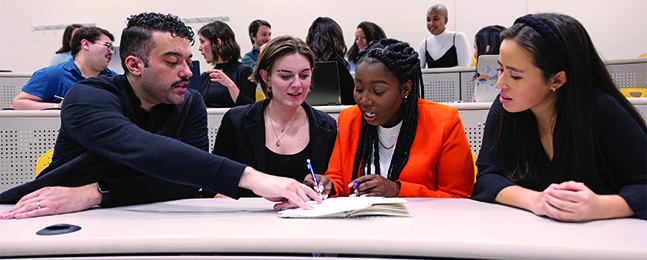Brandeis Punches Above Its Weight in Social Sciences Research

Dan Holmes
by Jarret Bencks
Brandeis ranked 17th in the U.S. in funding social sciences research in 2020-21, according to an annual National Science Foundation report published earlier this year. In all, $34.3 million was invested in social sciences research at Brandeis during the 2020-21 fiscal year.
The figures come from the NSF’s Higher Education Research and Development Survey, the primary source of information on research and development expenditures at U.S. colleges and universities.
Brandeis’ ranking in social sciences research expenditures puts it alongside research powerhouses, including the University of Michigan, the University of Wisconsin, UC Berkeley, UCLA, the University of Southern California, Harvard, Duke, and the University of Pennsylvania.
“As a modestly sized and young institution, Brandeis’ annual research expenditures cannot compete with those at the largest research universities, with far larger faculties, and vast expenditures in medical and engineering research,” says Steven Karel, the university’s vice provost for research. “Brandeis has had to make strategic decisions about choosing research areas to focus on where it can compete effectively. Historically, one such area was social science and, especially, social policy.”
The natural, mathematical, and computational sciences, and engineering accounted for more than 75% of the $89.7 billion in research expenditures by U.S. higher-education institutions in fiscal year 2021. Social sciences accounted for just 3%.
Brandeis’ social sciences ranking is based on spending on research projects within the Division of Social Sciences and the Heller School for Social Policy and Management. It also includes grants and contracts from government agencies and private foundations, as well as external scholarship support, and funding from internal university sources.
The university’s Division of Social Sciences, part of the School of Arts and Sciences, spans 19 departments and programs. Its faculty lead dozens of active research projects that receive funding from such organizations as the NSF, the National Institutes of Health, the National Endowment for the Humanities, the Alfred P. Sloan Foundation, and the John Templeton Foundation.
Heller’s research areas include health policy; behavioral health; economic and racial equity; disability policy; and child, youth, and family policy. During the 2020-21 fiscal year, Heller tallied 163 active research projects, including work funded by the Centers for Disease Control and Prevention, the U.S. Department of Justice, the Centers for Medicare & Medicaid Services, private foundations, and multilateral organizations like the United Nations Development Program and USAID.
